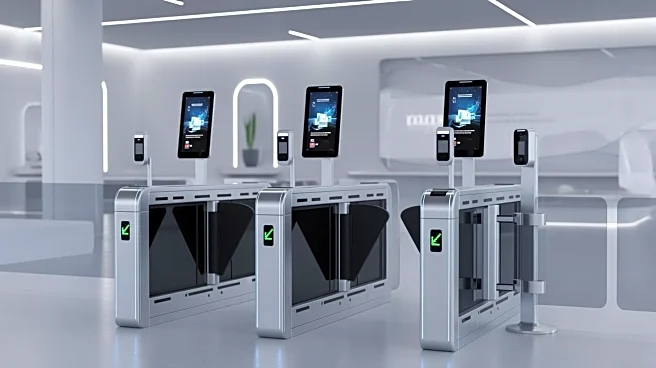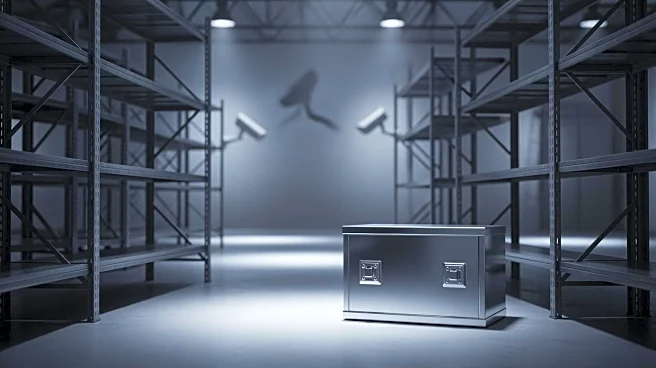What's Happening?
The Global Smart Self Boarding Gates Market is projected to experience significant growth, expanding from $1.35 billion in 2024 to $3.5 billion by 2032, with a compound annual growth rate (CAGR) of 12.1%. This market encompasses automated gate systems
equipped with biometric and digital technologies, such as facial recognition and barcode scanning, aimed at streamlining passenger verification and boarding processes at airports. Key players contributing to this growth include Wanzl, Dormakaba, Cambaum, and others. The market is segmented by types, including Boarding Pass Identification and Biometric ID identification, and applications in Civil and Military Aviation.
Why It's Important?
The expansion of the Smart Self Boarding Gates Market is crucial for enhancing airport operational efficiency, reducing wait times, and improving security measures. The integration of biometric and automated systems addresses the growing demand for seamless, contactless travel experiences, which is increasingly important in the post-pandemic era. This growth supports global airport modernization projects, potentially benefiting airlines, airport operators, and passengers by providing faster and more secure boarding processes.
What's Next?
As the market continues to grow, further investments in airport infrastructure and modernization are expected. The adoption of advanced identity verification technologies will likely increase, driven by the need for enhanced security and improved passenger experiences. Stakeholders, including airlines and airport authorities, may focus on integrating these technologies to remain competitive and meet evolving passenger expectations.
Beyond the Headlines
The rise of smart self-boarding gates may lead to broader implications for privacy and data security, as biometric data becomes more prevalent in travel processes. Ethical considerations regarding the use and storage of personal data will need to be addressed to ensure compliance with international privacy standards.















